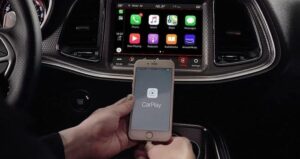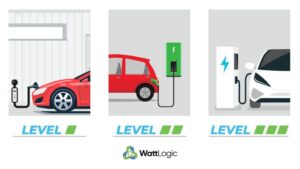Yes, you can install an EV charger at home. The growing popularity of electric vehicles makes having a charging station at your residence an attractive option. Imagine the convenience of powering up your car overnight, ready for your daily travels without a trip to the public charging station.
Before diving into the installation process, it’s essential to consider a few key factors, such as your home’s electrical capacity and local regulations. This guide will walk you through everything you need to know about installing an EV charger at home, ensuring you can enjoy the benefits of electric driving with ease.
Can I Install EV Charger at Home?
As electric vehicles (EVs) continue to gain popularity, many homeowners are considering the convenience of charging their vehicles at home. The question “Can I install an EV charger at home?” encompasses various aspects, including types of chargers, installation processes, costs, and benefits. This comprehensive guide will dive into each of these areas, making it easy for you to determine how to set up your home for electric vehicle charging.
Understanding the Types of EV Chargers
Before diving into the installation process, it’s essential to know that there are various types of EV chargers, each with different specifications and characteristics.
Level 1 Chargers
– **Power Source**: A standard 120-volt household outlet.
– **Charging Speed**: Provides about 4 to 5 miles of range per hour of charging.
– **Ideal For**: Homeowners who drive short distances and can charge overnight.
– **Installation**: Requires no special equipment, just your standard outlet.
Level 2 Chargers
– **Power Source**: A 240-volt outlet, similar to what you use for large appliances.
– **Charging Speed**: Adds approximately 25 to 30 miles of range per hour of charging.
– **Ideal For**: Those who drive more frequently or want quicker charging capabilities.
– **Installation**: More complex; may require a licensed electrician to install the dedicated circuit.
DC Fast Chargers
– **Power Source**: Requires a specialized power supply.
– **Charging Speed**: Offers rapid charging, up to 80% in about 30 minutes.
– **Ideal For**: Commercial settings or for EV owners who frequently travel long distances.
– **Installation**: Not typically suited for home installations due to high power requirements and costs.
Do You Have the Necessary Equipment?
Before installing an EV charger at home, you’ll need to assess if you have the necessary equipment, especially for Level 2 chargers. Here’s what to consider:
– **Electrical Service**: Check the capacity of your home’s electrical panel. It should be able to handle the additional load created by an EV charger.
– **Space for Installation**: Ensure there’s sufficient space near your parking area.
– **Type of Outlet**: For Level 2 chargers, you need a 240-volt outlet. If you don’t have one, it will need to be installed.
Where to Install Your EV Charger
When considering where to place your EV charger, think about the following factors:
Proximity to Parking
– Install the charger as close to your parking space as possible to minimize the distance the charging cable needs to reach.
Accessibility
– Make sure the charger is easy to access, so you can connect your vehicle without hassle.
Weather Protection
– If you plan to install the charger outdoors, choose a model that is weather-resistant or consider building a shelter to protect it.
The Installation Process
Installing an EV charger involves several steps. Here’s a simplified overview to guide you through:
Step 1: Check Local Regulations and Permits
– **Research Local Codes**: Look into local building codes to ensure you comply with regulations.
– **Obtain Necessary Permits**: Some areas require permits for electrical installations, so check with your local authorities.
Step 2: Choose a Qualified Electrician
– **Search for Licensed Professionals**: Look for electricians who specialize in EV charger installations.
– **Get Multiple Quotes**: Request quotes from several electricians to understand the price range and services offered.
Step 3: Install the Charger
– **Electrical Panel Upgrade (if necessary)**: Your electrician may need to upgrade your electrical panel to handle the new load.
– **Install the Charging Station**: Your electrician will install the charger, ensuring all connections are secure and compliant with electrical codes.
Step 4: Test the Charger
– After installation, the electrician should test the unit to ensure it’s functioning correctly and safely.
Cost Considerations
When thinking about installing an EV charger at home, consider the following costs:
Charging Unit Cost
– **Level 1 Charger**: Generally costs between $300 and $600, often with minimal installation costs.
– **Level 2 Charger**: Ranges from $500 to $1,500, plus installation fees.
Installation Costs
– **Electrician Fees**: Expect to pay between $50 and $100 per hour for installation. Overall installation costs can vary based on your location and any electrical upgrades needed.
Potential Rebates and Incentives
– **Federal Tax Credits**: The federal government offers tax credits for EV charger installations, which can significantly outweigh costs.
– **State Incentives**: Many states provide additional rebates or incentives for installing EV chargers. Check your state’s energy office for programs available.
Benefits of Installing an EV Charger at Home
Having an EV charger at home brings numerous advantages, making it a worthwhile investment for many homeowners.
Convenience
– **Charge at Your Own Pace**: Charge your vehicle overnight, so you start each day with a full battery.
– **No Waiting Times**: Avoid long lines at public charging stations.
Cost Savings
– **Lower Charging Rates**: Electricity is typically cheaper than gasoline, leading to savings over time.
– **Potential Savings on Fuel**: Charging at home can dramatically cut fuel expenses.
Increased Home Value
– **Market Appeal**: A home equipped with an EV charger may attract potential buyers interested in electric vehicles.
– **Modern Technology**: Enhances the appeal of your property in today’s environmentally conscious real estate market.
What if You Rent Your Home?
If you rent your home, the process of installing an EV charger can be a little more complicated, but it’s not impossible.
Talk to Your Landlord
– **Discuss Installation Plans**: Bring up the idea with your landlord and discuss whether they would be open to the installation.
– **Offer to Cover Costs**: You could offer to pay for the installation and any modifications to electric service.
Consider Portable Chargers
– **Use Level 1 Chargers**: A standard household outlet can serve as a temporary solution until a more permanent EV charging station can be set up.
– **Look for Charging Stations**: Familiarize yourself with public charging stations near your location for added convenience.
Maintenance and Safety Tips
To ensure your EV charger works effectively and safely, here are some maintenance tips:
Regular Inspections
– Periodically check for any visible damage to the charger or cables.
– Look for signs of wear and tear, such as fraying wires or loose connections.
Keep It Clean
– **Wipe Down the Charging Station**: Regularly clean the charging unit with a soft, damp cloth.
– **Remove Debris**: Make sure that there is no dirt or debris blocking the charger’s vents.
Follow Manufacturer Guidelines
– Always adhere to the manufacturer’s recommendations for usage and maintenance.
As you contemplate the installation of an EV charger at home, keep in mind the type of charger you need, the installation process, and the associated costs. The convenience, savings, and overall benefits make it a feasible project for many homeowners. With careful planning and the right resources, you can enjoy the ease of charging your electric vehicle from the comfort of your home.
EV Home Charging for Beginners
Frequently Asked Questions
“`html
What are the requirements for installing an EV charger at home?
To install an EV charger at home, you need to ensure your electrical system can handle the additional load. Typically, you may require a dedicated circuit and a compatible breaker. Check local building codes and regulations, as they dictate specific requirements for installation. Additionally, assess the available space for the charger and its proximity to your parking area.
Do I need a permit to install an EV charger at my residence?
Yes, most municipalities require a permit for installing an EV charger. This process ensures that the installation meets safety standards and complies with local electrical codes. Consult with your local building department to understand the specific permit requirements and any inspections that may be necessary.
Can I install an EV charger myself or should I hire a professional?
Installing an EV charger often involves working with high-voltage electricity, which can be dangerous without proper training. While some homeowners may feel comfortable handling electrical work, it is generally advisable to hire a licensed electrician. A professional can ensure a safe installation and help you navigate any local code requirements.
What type of EV charger is suitable for home installation?
For home installation, you typically have two main options: Level 1 and Level 2 chargers. Level 1 chargers plug into a standard household outlet and are suitable for overnight charging. Level 2 chargers require a dedicated circuit and offer faster charging times, making them ideal for daily use. Consider your driving habits and vehicle specifications when choosing the right charger.
How much does it cost to install an EV charger at home?
The cost of installing an EV charger varies based on several factors, including the type of charger, installation complexity, and local labor rates. On average, you can expect to pay between $500 and $2,000 for the entire installation process. This estimate may also include materials, permits, and inspection fees, so it’s best to get quotes from different electricians.
“`
Final Thoughts
Installing an EV charger at home is a feasible option for many homeowners. You need to consider your electrical system’s capacity, local regulations, and whether you have a designated parking area.
Consulting with a licensed electrician can simplify the process and ensure safety. They can help you determine the right type of charger for your vehicle and home.
In summary, if you’re wondering, “can I install EV charger at home?” the answer is generally yes, provided you meet the necessary requirements. This investment can enhance convenience and make charging your electric vehicle seamless.



